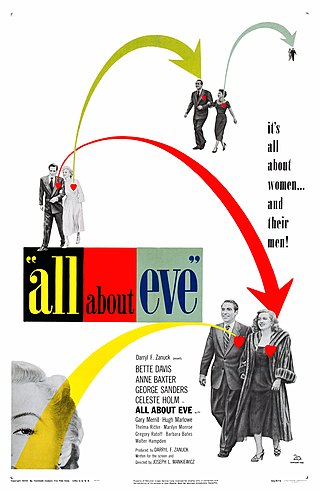
All About Eve is a 1950 American drama film written and directed by Joseph L. Mankiewicz, and produced by Darryl F. Zanuck. It is based on the 1946 short story "The Wisdom of Eve" by Mary Orr, although Orr does not receive a screen credit.
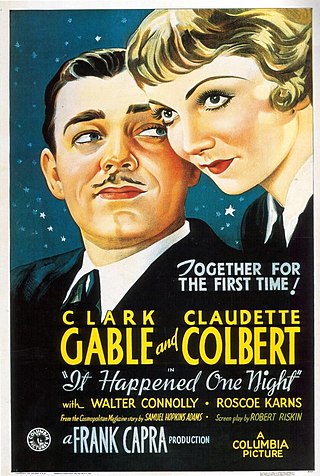
It Happened One Night is a 1934 American pre-Code romantic comedy film with elements of screwball comedy directed and co-produced by Frank Capra, in collaboration with Harry Cohn, in which a pampered socialite tries to get out from under her father's thumb and falls in love with a roguish reporter. The screenplay by Robert Riskin is based on the August 1933 short story "Night Bus" by Samuel Hopkins Adams, which provided the shooting title. Classified as a "pre-Code" production, the film is among the last romantic comedies created before the MPPDA began rigidly enforcing the 1930 Motion Picture Production Code in July 1934. It Happened One Night was released just four months prior to that enforcement.

Grand Hotel is a 1932 American pre-Code drama film directed by Edmund Goulding and produced by Metro-Goldwyn-Mayer. The screenplay by William A. Drake is based on the 1930 play of the same title by Drake, who had adapted it from the 1929 novel Menschen im Hotel by Vicki Baum. To date, it is the only film to have won the Academy Award for Best Picture without being nominated in any other category.

Dark Victory is a 1939 American melodrama film directed by Edmund Goulding, starring Bette Davis, and featuring George Brent, Humphrey Bogart, Geraldine Fitzgerald, Ronald Reagan, Henry Travers, and Cora Witherspoon. The screenplay by Casey Robinson was based on the 1934 play of the same title by George Brewer and Bertram Bloch, starring Tallulah Bankhead.

Stagecoach is a 1939 American Western film directed by John Ford and starring Claire Trevor and John Wayne in his breakthrough role. The screenplay by Dudley Nichols is an adaptation of "The Stage to Lordsburg", a 1937 short story by Ernest Haycox. The film follows a group primarily composed of strangers riding on a stagecoach through dangerous Apache territory.

Ruth Elizabeth "Bette" Davis was an American actress of film, television, and theater. Regarded as one of the greatest actresses in Hollywood history, she was noted for her willingness to play unsympathetic, sardonic characters and was known for her performances in a range of film genres, from contemporary crime melodramas to historical and period films and occasional comedies, although her greatest successes were her roles in romantic dramas. She won the Academy Award for Best Actress twice, was the first person to accrue ten Academy Award nominations for acting, and was the first woman to receive a Lifetime Achievement Award from the American Film Institute. In 1999, Davis was placed second on the American Film Institute's list of the greatest female stars of classic Hollywood cinema.

Bringing Up Baby is a 1938 American screwball comedy film directed by Howard Hawks, and starring Katharine Hepburn and Cary Grant. It was released by RKO Radio Pictures. The film tells the story of a paleontologist in a number of predicaments involving a scatterbrained heiress and a leopard named Baby. The screenplay was adapted by Dudley Nichols and Hagar Wilde from a short story by Wilde which originally appeared in Collier's Weekly magazine on April 10, 1937.

The Bad and the Beautiful is a 1952 American melodrama that tells the story of a film producer who alienates everyone around him. The film was directed by Vincente Minnelli, written by George Bradshaw and Charles Schnee, and stars Lana Turner, Kirk Douglas, Walter Pidgeon, Dick Powell, Barry Sullivan, Gloria Grahame and Gilbert Roland. The Bad and the Beautiful won five Academy Awards out of six nominations in 1952, a record for the most awards for a movie that was not nominated for Best Picture or for Best Director.

Now, Voyager is a 1942 American drama film starring Bette Davis, Paul Henreid, and Claude Rains, and directed by Irving Rapper. The screenplay by Casey Robinson is based on the 1941 novel of the same name by Olive Higgins Prouty.
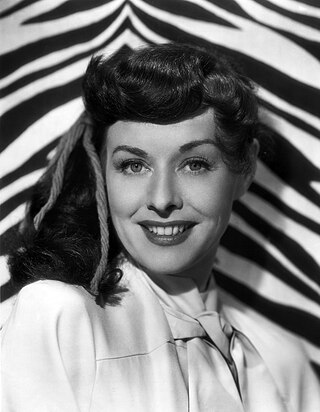
Paulette Goddard was an American actress and socialite. Her career spanned six decades, from the 1920s to the early 1970s. She was a prominent leading actress during the Golden Age of Hollywood.

Rebecca is a 1940 American romantic psychological thriller film directed by Alfred Hitchcock. It was Hitchcock's first American project, and his first film under contract with producer David O. Selznick. The screenplay by Robert E. Sherwood and Joan Harrison, and adaptation by Philip MacDonald and Michael Hogan, were based on the 1938 novel of the same name by Daphne du Maurier.

Little Women is a 1933 American pre-Code drama film directed by George Cukor, and starring Katharine Hepburn, Joan Bennett, Frances Dee, and Jean Parker. The screenplay, written by Sarah Y. Mason and Victor Heerman, is based on the 1868-1869 two-volume novel of the same name by Louisa May Alcott.
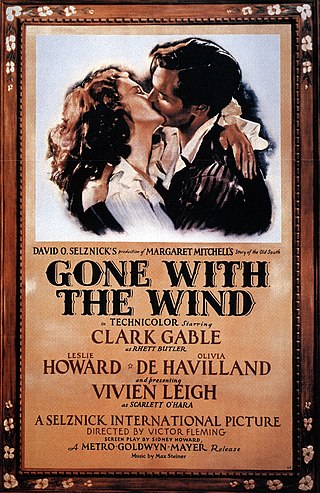
Gone with the Wind is a 1939 American epic historical romance film adapted from the 1936 novel by Margaret Mitchell. The film was produced by David O. Selznick of Selznick International Pictures and directed by Victor Fleming. Set in the American South against the backdrop of the Civil War and the Reconstruction era, the film tells the story of Scarlett O'Hara, the strong-willed daughter of a Georgia plantation owner, following her romantic pursuit of Ashley Wilkes, who is married to his cousin, Melanie Hamilton, and her subsequent marriage to Rhett Butler.
Ernest Jacob HallerASC, sometimes known as Ernie J. Haller, was an American cinematographer.

Way Back Home is a 1931 American Pre-Code drama film directed by William A. Seiter and starring Phillips Lord, Effie Palmer, Frank Albertson, and Bette Davis. The screenplay by Jane Murfin is based on characters created for the NBC Radio show Seth Parker by Phillips Lord.

The Sisters is a 1938 American drama film produced and directed by Anatole Litvak and starring Errol Flynn and Bette Davis. The screenplay by Milton Krims is based on the 1937 novel of the same title by Myron Brinig.
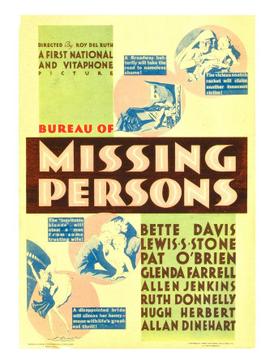
Bureau of Missing Persons is a 1933 American pre-Code drama film with comic overtones directed by Roy Del Ruth and starring Bette Davis, Lewis Stone, Pat O'Brien and Glenda Farrell. The screenplay by Robert Presnell is based on the book Missing Men by former New York City Police Captain John H. Ayers and Carol Bird.

Special Agent is a 1935 American crime drama film directed by William Keighley and starring Bette Davis and George Brent. The screenplay by Laird Doyle and Abem Finkel is based on a story by Martin Mooney. The film was produced by Cosmopolitan Productions and released by Warner Bros.

The Adventures of Tom Sawyer is a 1938 American drama film produced by David O. Selznick and directed by Norman Taurog who had previously directed Huckleberry Finn (1931) with Jackie Coogan and Junior Durkin. The film starred Tommy Kelly in the title role, with Jackie Moran and Ann Gillis. The screenplay by John V. A. Weaver was based on the classic 1876 novel of the same name by Mark Twain. The movie was the first film version of the novel to be made in color.

Comet over Broadway is a 1938 American drama film starring Kay Francis, Ian Hunter and Donald Crisp. It was produced and released by Warner Brothers. John Farrow stepped in as director when Busby Berkeley became ill, but Farrow was uncredited on the film.




























